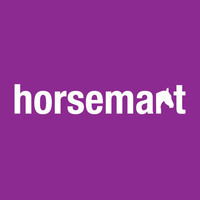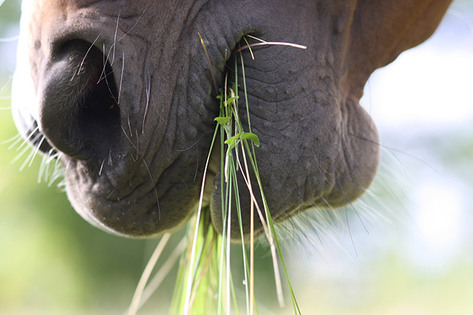
Are You & Your Horse Ready For Bitting Advice? The Steps You Need To Consider First
Equestrian Advice & Guides All Disciplines
Build your business profile for FREE and expose your services to thousands of potential clients!
Create my profile now!
With summer finally here, horse owners are naturally keen to give their four legged friends a cooling treat! But it’s essential to ensure you know which treats are ok for your horse to have. If you feed them the wrong thing, it can not only cause them a lot of discomfort and pain, but can even cause lasting damage to their digestive and urinary systems, and in severe cases lead to fatality.
When feeding your horse, it’s always best to stick to a regular feeding routine and for your horse’s diet to consist mainly of grass or hay.
It’s okay to give your horse a treat now and again, whether it’s as praise for good work or a way to help them stay cool in the summer, but without the right knowledge, you could end up feeding your horse treats that you don’t realise are harmful to them. There are also some foods that are totally fine for your horse to eat that may surprise you!

There are some foods that you should avoid feeding your horse at all costs. These foods can cause your horse digestion problems and could result in them becoming severely unwell.
Tomatoes - As a member of the toxic Solanaceae plant family, tomatoes are related to deadly nightshade, horse nettle and other toxic plants, all of which contain tropane alkaloids. The leafy green parts of the tomato plant contain atropine, which slows gut function and can cause colic. The tomato fruit itself contains hyoscyamine, which increases heart rate, decreases saliva production and intestinal motility, and causes severe constipation and/or diarrhoea that can be potentially life-threatening.
Onions & Garlic - Along with leeks, shallots and chives, onions and garlic are members of the Allium family, which if ingested are toxic to horses. This plant family contains the chemical N-propyl disulfide, which damages red blood cells, and in turn can lead to anemia.
Chocolate - Chocolate contains theobromine, a toxic chemical that can be fatal to horses when consumed in large quantities. Chocolate consumption can cause many health complications, including colic, seizures, metabolic derangements and internal bleeding. Chocolate also contains varying amounts of caffeine, which could cause a competition horse to fail a drug test resulting in disqualification.
Dairy Products - It’s best to avoid all forms of dairy produce as horses, like many other animals, are lactose intolerant. Feeding dairy to your horse could cause severe diarrhoea, and prolonged feeding can lead to more serious problems with digestion, including colic.
Bread - Bread products fall into the category of proccessed foods, which horses aren't able to break down properly. This can lead to an obstruction in their digestive tract, which in turn can cause colic.
Meat - Horses are herbivores, meaning their teeth and digestive systems are not built to eat meat. Their liver isn't designed to get rid of the residues of meat products, and there is no evidence to suggest what long term side effects this could have. It's therefore best to steer well clear of any meat-based products or even products containing small quantities of meat.
Rhubarb - Due to the high levels of calcium oxalates contained in rhubarb, it is toxic to horses, as well as many other animals. Ingesting rhubard can cause tremors, and if consumed in higher quantities, can damage their digestive and urinary systems, leading to potential kidney failure.
Potatoes - As another member of the toxic Solanaceae plant family, you should not feed potatos to your horse, especially raw, but all forms should be avoided. Green or rotten potatos pose the biggest risk as their chemical composition can cause toxicosis. Plus, if eaten whole, they can be a major choking hazard.
Bran - Despite once having been considered good for horses, bran has since been proven to cause a mineral imbalance which negatively impacts their digestion and will likely cause diarrhoea.
Fruit Stones & Seeds - Many fruits contain stones / pits or seeds which can contain arsenic or cyanide compounds that are toxic to horses when consumed in high quantities. Large stones can also pose a choking hazard, so should be removed before offering certain fruits to your horse.
Avocado - Every part of the avocado fruit and tree is poisonous to horses, including the skin, stone, leaves and tree bark. Consumption can cause a very irregular heartbeat, along with restricted breathing, colic, and in serious cases, death.
Caffeine - Caffeine can cause an irregular heartbeat and, as mentioned above, if your horse competes it can cause result in failure of a drug test.
Lawn Clippings, Garden Cuttings & Compost - While horses are grazing animals, they should only eat fresh grass. The moment grass is cut it begins the process of fermentation, so when eaten it will continue to ferment and expand in the horse's stomach, a process which doesn't usually start until the grass is a lot further through the horse's digestive system. This expansion can lead to colic and even potentially rupture the horse's stomach. There are also a munber of plants that can be deadly to them if consumed, and these could easily be hidden in garden waste.
There are plenty of foods that are perfectly safe to feed your horse. It is always best to check if your horse is insulin resistant before feeding them anything containing sugar and you should always cut up other foods to avoid any choking hazards (take special care with any hard, round fruits and vegetables).
Good, safe snacks for horses include;
IMPORTANT NOTE: ALL FOODS SHOULD BE FED IN MODERATION, OVER FEEDING YOUR HORSE CAN CAUSE UPSET TO A BALANCED DIET.
Everyone loves a treat now and again and so do our horses. We often feed our horses treats in return for good work or praise when training, and that’s fine. Some even give their horses a little treat each day and most of the time we do it because it makes us feel good. It’s good to treat your horse now and again, but there are some guidelines that you should follow.
The fruit and vegetables on the approved list above are a good treat for your horse, as they taste great and are usually similar to the food that your horse eats in their regular diet. This means that the chances of upsetting your horse's digestion are less likely.
Treats should also be fed in moderation, feeding your horse too much can have a negative impact on their carefully balanced diet. Treats are only treats when they are fed little and often.

